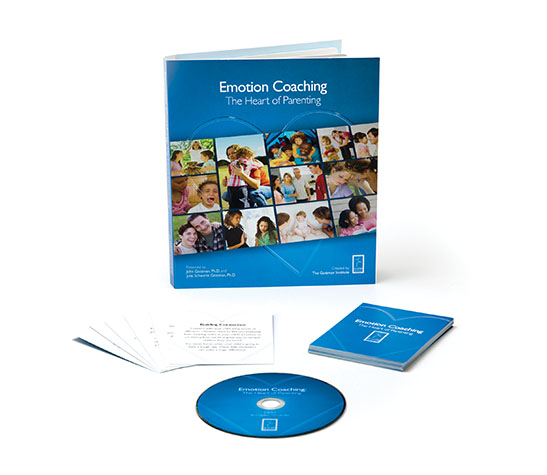Children are honest about how they feel.
When they see something new or exciting, their eyes light up as they exclaim an awed “wow.” They giggle so intensely that others can’t help but smile along. The pride that comes with achieving something new is ever so brightly depicted when they start clapping for themselves. They express their love joyfully with hugs and kisses.
They also whine about not getting what they want, cry deeply when they get hurt, throw something in anger, hide in shame when they fail, display jealousy freely, and express fear at unexpected or loud noises.
Unfortunately, not every parent knows how to validate the full spectrum of their child’s feelings. As adults, we may look back and realize the damage that had been done to us—often unintentionally—by well-meaning but dismissive parents who never learned how to properly manage their own feelings.
Then we have our own children and become acutely aware of the challenge that lies before us.
How do we help our children navigate difficult emotions?
You want to hug them when they’re upset. Sometimes you may want to yell at them when they get angry. Perhaps it even makes you chuckle a little when they cry just because they look so cute and the issue seems so small relative to the big picture of life.
Sometimes you may want them to stop feeling so deeply because you are too busy to comfort them in this moment. Perhaps you don’t want them to feel deeply because you don’t like feeling sad, angry, or ashamed yourself. Perhaps you simply want to rescue them from the difficulty of tough feelings.
According to Leslie L. Greenberg, one of the founders of emotion-focused therapy, someone who is emotionally intelligent knows when and how to move in and out of emotions.
As parents, this is what we are trying to help our children figure out. We want them to know how to feel deeply, how to listen to their feelings, their messages, and respond appropriately, and when to redirect a feeling.
The following are a few tips to help you teach emotional intelligence to your child.
1. Identify the feeling
Help your child describe the situation and the feeling or feelings that arose as a result of the situation. Empathize with them, and let them know that it is normal to feel what they are feeling.
For example: “You’re crying because your brother took your toy away. That made you feel sad. That would make me feel sad, too.”
2. Assess your own feelings
How do you want to respond to your child’s feeling? What does this tell you about yourself or your expectations? Try not to base your immediate response to your child’s feeling on your own response to the situation.
For example: Your child throws a tantrum. You feel angry and may want to yell in response. Instead, you pause and discover why your child acted that way. You say something like, “You’re angry because mommy said ‘Don’t touch.’ Mommy said this because she loves you and doesn’t want you to get hurt.” Later, spend some time thinking about why the tantrum bothered you so much. Did you interpret the tantrum as a negative reflection on you as a parent? Were you annoyed with the noise? Did it remind you of something else?
3. Help your child choose an appropriate verbal and behavioral response
If your child is sad, allow them to cry until they’re done (this may come in waves). If they’re angry, allow them to express their anger by using words, jumping, squeezing a pillow, or in another non-destructive way.
For example: “I understand that you are angry. That’s okay. It’s not okay to hit your brother. How can you show your anger in another way?”
Research shows that giving your child the gift of emotional intelligence can greatly improve their quality of life. Your child will feel confident that what they experience is important and that their feelings are valuable. This ability to communicate feelings effectively can also increase intimacy in their friendships and later in their romantic relationships. Emotional intelligence can prevent them from resorting to unhealthy ways of coping. It also increases their ability to work better with others and helps them focus on assignments, which will make them a better student and, eventually, a better employee.
Finally, one of the best gifts you can give to your child is to continue growing and developing your own emotional intelligence. The better you are at expressing and understanding your feelings, the better you’ll be able to teach your children to do the same. Spend some time reflecting on how you deal with tough feelings such as anger, shame, guilt, fear or sadness and decide if there is something you can do differently today.
The Marriage Minute is a new email newsletter from The Gottman Institute that will improve your marriage in 60 seconds or less. Over 40 years of research with thousands of couples has proven a simple fact: small things often can create big changes over time. Got a minute? Sign up below.








